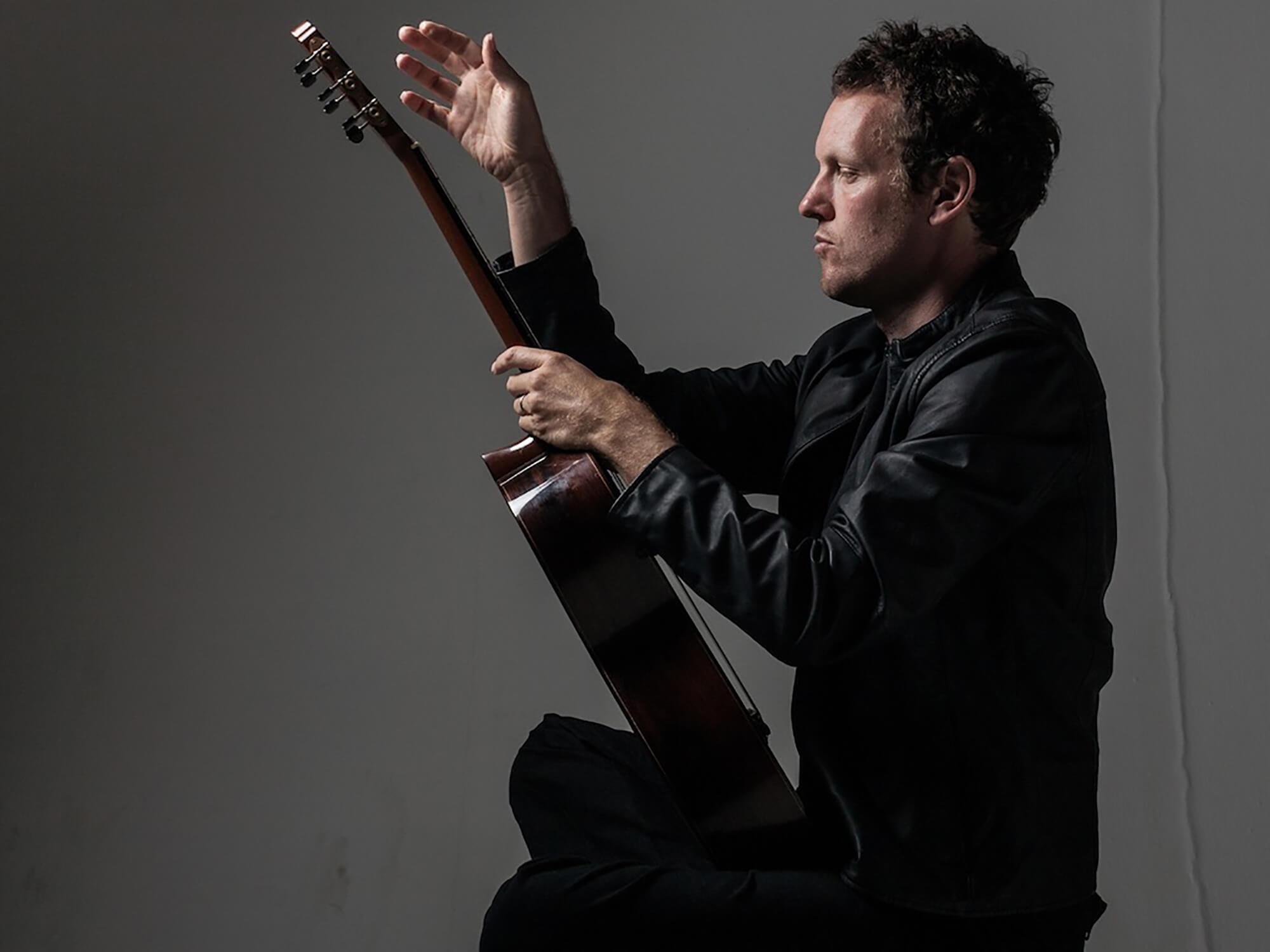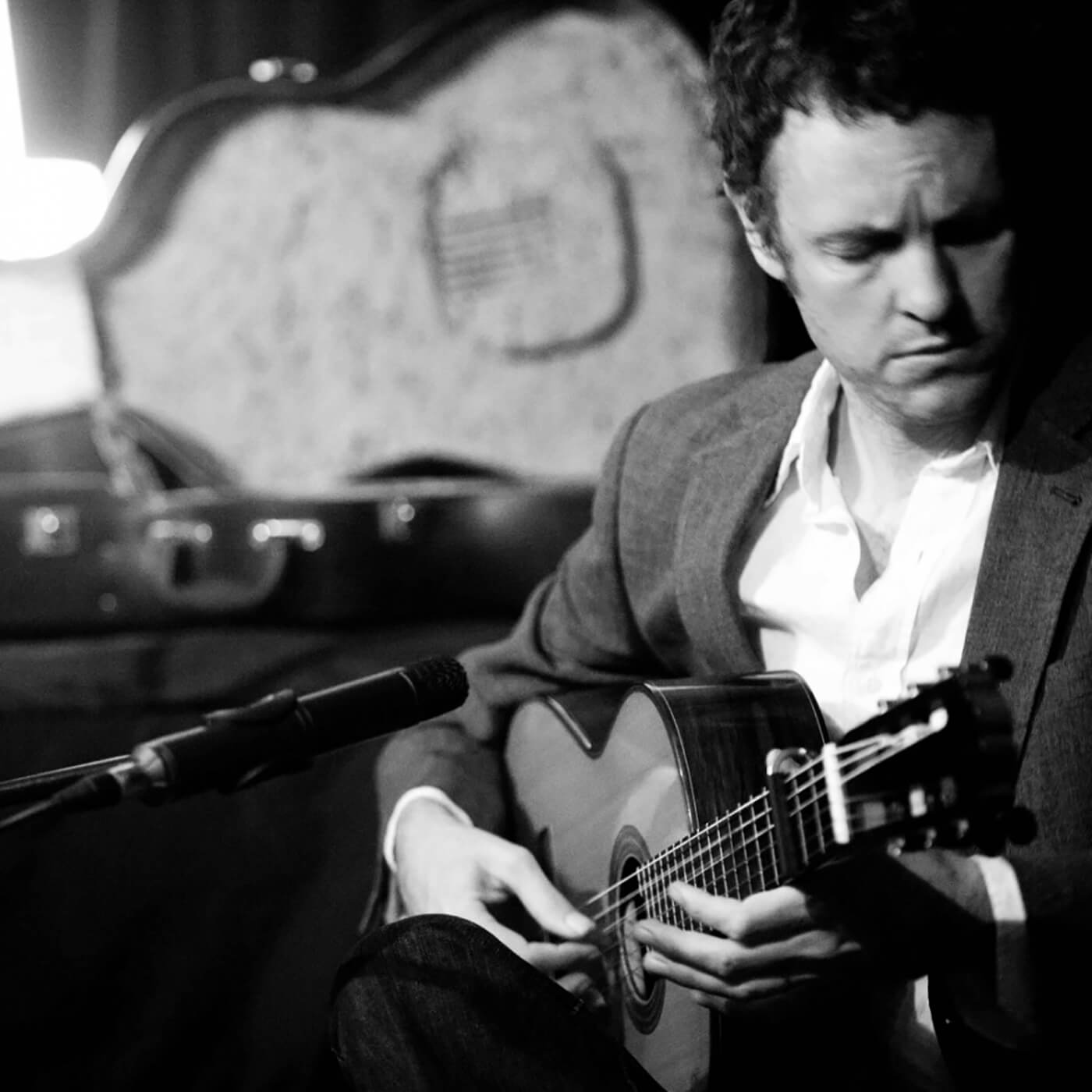One Night on Earth: Derek Gripper’s marriage between kora and classical guitar
We speak to classical guitarist Derek Gripper about his landmark album One Night on Earth, African music conservation, and transcribing the kora for guitar

Image: Simon Attwel
The soothing, nostalgic and soulful sounds that come from traditional African instruments must be conserved. As a Rwandan guitarist who grew up listening to the sounds of the inanga, cowboys’ flutes from east Rwanda, and all manner of other beautiful instrumentation, I’ve come to understand that it’s necessary to safeguard their longevity and growth.
A few years ago, while exploring conservation methods and the work of pioneers dedicated to researching and promoting traditional African stringed instruments such as the kora, a 21-string harp-like instrument, I discovered Derek Gripper.
Born in South Africa, Derek is a classically trained musician who works to transcribe traditional West African music to guitar, with the help of tablature that’s been in use for 500 years.
I have been Derek’s student throughout the pandemic, and the way he makes his guitar sound exactly like the kora, through clever tuning and technique, is incredibly interesting.
In his online classes on transcribing kora music to guitar, Derek discusses the weather, rhythm, tuning, West African culture, and musical feelings as contributing factors. His arrangement of Jarabi, a kora song from Kaira, the 1989 album by Mailian kora player Toumani Diabaté, one of the world’s leading African musicians and one in a long line of griot kora players, is exceptional.
I join Derek on Zoom for an illuminating discussion about what it is to feel lost in musicality and to feel found in artistry, as well as the crisp, sunny days and warm, bad winds that marked the re-recording of his conservative and Afrocentric album One Night on Earth.
“Ten years ago, in a small 200 or 300-year-old chapel on a farm four hours outside of Cape Town, in a garden made of stones, I recorded One Night on Earth to be my ninth record,” says Derek.
“It’s a record that translates the music of Toumani Diabaté and it was my return as an interpreter – in 2000 I was recording my own compositions only.
“The album was recorded through the night – that’s why it’s called One Night on Earth. I realised that this year is the 10th anniversary of that recording, and we were having a moment [during the pandemic] for about two months where you could do live performances in South Africa. You were allowed gatherings of up to 50 people, so I did a small concert in the same chapel.
“I don’t wanna be too nostalgic but tape is wonderful and digital is terrible,” Derek adds. “During the concert, I had a reel-to-reel tape machine recording, because it really picks up the guitar in a different way to digital. I don’t know why but I really enjoy that, and it makes noise, which add some ambiance.

“After the show, I went back to the original studio that I did the mixing in [Piece of Eden studio, run by Howard Butcher] and where I recorded four of my albums, and we digitised the reel-to-reel tapes. We put them onto the computer and then I mixed them at home.
“I released that as a Bandcamp release called One Night on Earth: Live in 2021. It’s the same material but 10 years after. I am also recording a lot of things at the moment for streaming for my record label. I haven’t put the song streaming yet because I wanted to make this a special thing for the people who’ve been following and supporting One Night on Earth.”
“There is a beautiful thing in Mali – maybe it’s West Africa, maybe it’s Africa – where everyone accepts classical European players. That reminds me of when I tried to learn kora.
“I had six months of fun playing that instrument. I played every day and I learnt as much as I could from Lucy Durán a musicologist from the 1960s. He made a translation, so I did some of that, and I found something online [software that teaches kora]. I learnt, improvised, and played on the kora. Then I broke two strings. It’s hard to change the strings on a kora. So I got lazy and thought, ‘Ah, I can’t do this and have another instrument. I have to find the right instrument for it.’
“So I stopped playing kora and actually rented it to somebody. Then they gave it away – I was really upset about that. I’m still annoyed. So I gave it up. But then I had it in my fingers. I was like, ‘Okay, this is the thing I wanna do’.
“So it was a long time after that, maybe a year or two, when I started doing the guitar translations. Then I was really happy because I could play the music that I loved the most and could play it on the instrument that I knew.”
Derek is currently hosting online lessons via Patreon so that other people can learn to play his kora compositions on guitar along with him by listening to traditional West African music.
Derek’s interpretation of kora compositions for solo classical guitar are played in EADAF♯
E, a tuning similar to that of the vihuela, a 15th-century Spanish instrument.
Derek calls it “a very nice tuning that moves everything you would normally do on the guitar one string lower so that you get to know the same patterns”.
For guitar lessons with Derek Gripper, click here. For more features, click here.
